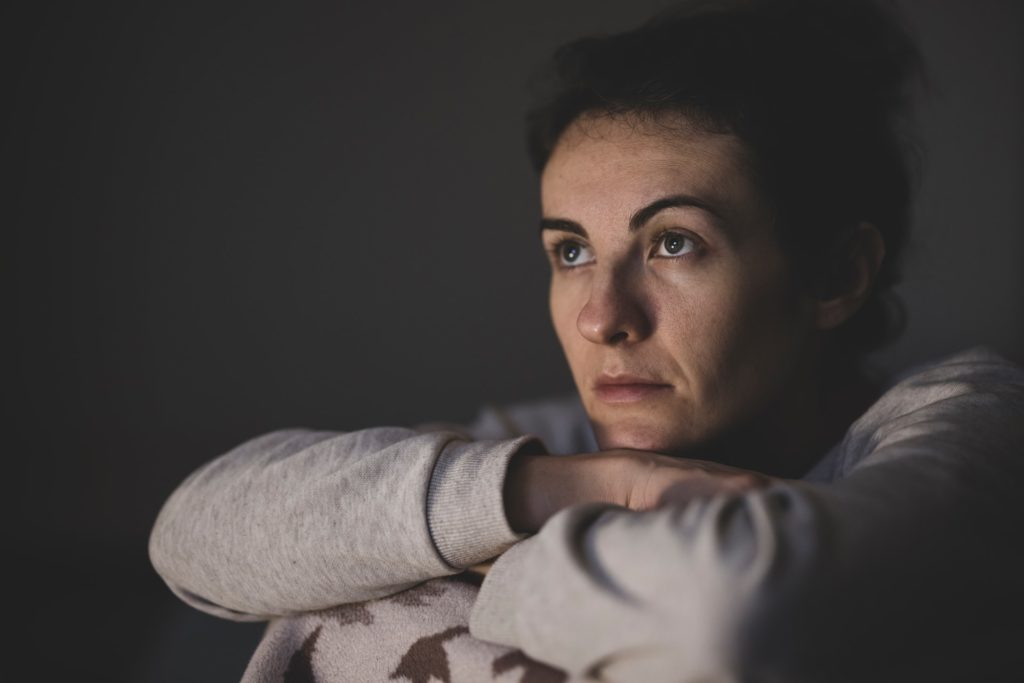One in seven adults has handled depression at least once in their lifetime. Over the years, the definition of depression has evolved. It is currently defined as an emotional expression of helplessness or powerlessness to live up to maintained aspirations. It is a medical condition that affects how one feels, acts, and thinks. The signs of depression can vary from mild to severe, and not everyone will display typical symptoms of sadness and despair. Here are some subtle signs of depressions;
1.Change in sleep habits
These changes may include insomnia which include; Challenges in falling asleep, inability to sleep throughout the night, and excessive sleeping. Many depressed patients get diagnosed while seeking treatment for changes in sleep patterns.
These changes in sleep habits may make one feel agitated and anxious. They may be a cause of distress and impact negatively on one’s quality of life. It is important to note that lack of sleep alone is not a cause of depression, but it does play a role, especially if it lasts over a long period of time.
2.Excessive fatigue
Fatigue can be defined as a lack of motivation or a lasting loss of energy. It is a common sign of depression and can have severe effects such as;
- Physical effects like lack of energy
- Emotional effects that may be shown by lack of concern
- Cognitive effects evidenced by difficulty in concentrating
Fatigue is listed as a subtle sign of depression as the two are not always linked. One can be fatigued without being depressed. For instance, one can also be depressed without being fatigued. Feeling fatigued over a long period of time ( usually longer than 2 weeks) is a sign that one ought to see a medical doctor for medical diagnosis.
3.Loss of pleasure in hobbies
Activities that one used to look forward to may no longer be of interest to someone battling depression. These activities may include spending time with friends, riding bikes, or other hobbies. This is because depression may deprive one of the ability to feel pleasure and joy, a condition known as anhedonia. The two types of anhedonia are;
- Physical anhedonia – Means that one no longer enjoys physical sensations such as hugs, emotions, or even taste
- Social anhedonia – Means that one would rather not spend time with people.
Loss of pleasure in activities usually strains relationships with family and friends. People who begin taking antidepressants may find that the symptom gets better. Lastly, talk-therapy is also known to improve anhedonia.
4.Irritability
Individual emotional states are not the easiest things to track. This is because it takes a lot of practice to stay conscious about moods, and how they impact our daily lives. Irritability is often linked to stress. Sometimes irritable people blame the people around them for their lack of patience. Irritability is strongly linked to clinical depression if one has previously reacted subtly to a similar issue.
Studies show that depressed people are negatively biased in how they perceive their environment. Any information is highly likely to be perceived negatively which explains the irritability. People living with depression can therefore persistently start arguments, behave meanly towards others, be impatient, or be overly critical towards people or situations.
5.Weight changes
Weight changes go hand in hand with depression. Moreover, weight gain may occur due to a response to negative emotions, which may lead to obesity. Studies show that individuals with short sleep duration (one of the signs of depression) and high emotional eating are vulnerable to weight gain. Emotional eating refers to consuming some chosen energy-dense foods in response to negative emotions such as stress.
Lack of appetite may inadvertently cause weight loss. In addition, sudden weight loss is a health risk and may lead to lifestyle diseases. It can also leave someone dealing with depression with lack of energy making it difficult to cope with other symptoms. Weight changes are often directly linked with other symptoms of depression.
Bottom line
Knowing if you are depressed enables you to have control of your mental and physical well-being. Fortunately, depression is a treatable disease. Treating depression can commence with;
- Reduction of stressful factors.
- Improvement of self esteem through affirmations.
- Exercising very regularly.
- Seeking support from family and friends.
- Seeking medical attention and therapy.
It is important to make nutrition and wellness of the whole body a priority. This can be done by focusing on small changes when dealing with depression. In conclusion, remember to practice self-care to preserve your mental well-being when looking after someone with depression.












